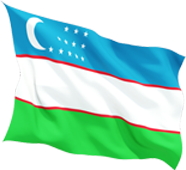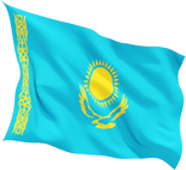On the eve of the summit of the Economic Cooperation Organization (ECO) held in Tashkent on November 8-9, the correspondent of the «Dunyo» IA talked with the Secretary General of the organization Khusrav Noziri about the priorities of the association, the development of cooperation within its framework and the role of Uzbekistan in this process.
– We would like to know your opinion on the expected results of the upcoming 16th summit of the Economic Cooperation Organization to be held in Tashkent and the current issues on the agenda of the conference.
– Thank you. First of all it is a great privilege to hold the 16th ECO Summit in Tashkent, with the kind participations of Heads of State and Government of our Member Countries.
Uzbekistan’s active stance in ECO is part of the country’s astonishing development efforts in the recent years. I am very glad to remark that Uzbekistan has considerably enhanced its global and regional reputation, and as such, we are delighted to witness the country’s recent economic development and observe that its prospects and projections are also very promising.
This Summit is being held amid certain international developments affecting the region. In this sense, the Summit is of highest significance as an international forum to gather our leaders to review the performance of the Organization and to guide its future strives. The Summit will deliberate on the activities of ECO, and evaluating the current status of regional cooperation in our priority sectors, such as trade, energy, transport, environment, tourism, agriculture, industry and green transition, will provide directions to the Organization for its future enterprises.
Also, I believe that on the sidelines of the event leaders of the Member States will hold very productive bilateral interactions and constructive discussions, which I hope also contribute significantly to peace, prosperity and stability in the region.
– Uzbekistan chaired the Economic Cooperation Organization for the first time in 2022. What role did the results of the chairmanship of Uzbekistan play in the development of this Organization?
– The Organization acknowledges that in recent years Uzbekistan has been engaging very strongly with the Organization in order to enhance regional cooperation and connectivity. Early this year, in January we held the 26th Council of Ministers Meeting here in Tashkent as well, with participation of all Foreign Ministers of our Member States, attesting to the high importance given to Uzbekistan by our Member States.
In 2022, ECO has certainly got an accelerated momentum moving forward to realize its objectives under the Chairmanship of Uzbekistan. Several high-level and Ministerial Meetings were successfully organized by Uzbekistan in critical areas of cooperation, yielding very fruitful results that enhanced cooperation and collaboration amongst the Member States, particularly in the transport and connectivity.
As you know, on the brilliant initiative of the honourable President H.E. Shavkat Mirziyoyev, the year 2022 was proclaimed as the “Year of Strengthening Connectivity” in the ECO Region, which was well appreciated by our Council of Ministers.
Also, Uzbekistan has led the establishment of a “High-Level Dialogue Platform” on environmental cooperation with the participation of international scientists and experts, during its Chairmanship. We highly appreciate Uzbekistan’s active stance in leading the environment framework of the Organization such as in the working groups, as well as initiating new projects on biodiversity, land degradation and climate change.
The chairmanship of Uzbekistan was also very active in the tourism sector. The 4th ECO Tourism Ministerial Meeting was kindly hosted by Uzbekistan in 2022. In addition, the ECO Tour Operators’ Network was established in 2022, uniting 242 tour operators and tourism agencies from Azerbaijan, Iran, Pakistan, Tajikistan, Türkiye, Turkmenistan and Uzbekistan. Uzbekistan particularly stands out with its great historical and natural endowments. In this regard, we congratulate Uzbekistan for the selection of the city of Shahrisabz as the ECO Tourism Capital for the year 2024.
– The main goal of the ECO is to develop cooperation between the member states in the fields of trade and economy, investment, transport and logistics, as well as tourism. In this regard, which results achieved in recent years would you highlight?
– In the field of trade ECO is primarily focused on (i) trade liberalization through a preferential trade framework; (ii) trade facilitation, and (iii) trade promotion based on our priorities. Mostly entailing export-oriented policy, our approach is targeted at attracting and increasing trade flows to the region, reducing cost and time of doing business, enhancing region’s share in the global market, with an ultimate aim to boosting ECO Region’s Trade Profile.
In energy sector, we recognize that transition towards sustainable and efficient energy resources is inevitable. In this context, the establishment of ECO Clean Energy Center in Baku is a significant step. This Center will enhance energy cooperation and activities in the region. In energy, another flagship project is the establishment of ECO Regional Electricity Market (ECO-REM). It is aimed at making a regional umbrella for an associated power trade, leading to advanced and integrated electricity market and infrastructure in the region. We are collaborating with the Energy Charter and UNESCAP for its early launching.
In the context of connectivity, we have been endeavouring to facilitate our landlocked countries with strong intra-regional and inter-regional linkages. Towards this goal, we maintain collaboration with our global partners, most significantly with the relevant UN Agencies. Our connectivity efforts, inter alia, are to establish an ECO Air Hub in eastern part of the region, develop and expand various corridors, including Trans-Caspian and Almaty-Tehran-Istanbul Corridors, as well as the extension of Islamabad-Tehran-Istanbul Rail Corridor to Bulgaria, which is the ECO’s debut initiative to link South Asia with Europe through railway connection.
Our other significant initiatives to enhance regional cooperation in tourism, food security and environment include: (i) ECO Tourism Action Plan and the successful concept of ECO Tourism Capitals; (ii) ECO Regional Program for Food Security; (iii) Transformation of ECO Regional Coordination Center for Food security (ECO-RCCFS) from a program-based organization into a self-sustainable institution; and (iv) High-Level Dialogue Platform on Environmental Cooperation in the ECO with the participation of international scientist and experts.
– Transport and logistics are becoming a priority area within the ECO. Let’s talk about the current state and prospects of cooperation in this regard.
– In line with our connectivity targets and UN Sustainable Development Goals, we have remained focused on developing consolidated transport infrastructure in the region. The Organization has adopted a holistic approach entailing policy making, establishing legal framework, implementing internationally standard procedures and conventions, development of infrastructure, capacity-building, technical cooperation, coordination mechanism and collaboration with our relevant international partners and banks.
In this context, the proclamation of the year 2022 as “Year of Strengthening Connectivity” and the year 2023 as the “Year of Green Transition and Interconnectivity” further highlights the significance of enhancement of transport in the region. In fact, the field of transport and connectivity is the most busy area of our regional cooperation agenda today.
In materializing our objectives the 12th Ministerial Meeting on Transport was held on November 2-3 in Tashkent, which produced common understanding of the issues and the will to implement agreed measures to enhance regional connectivity.
Particularly, the ECO Transit Transport Framework Agreement (TTFA) is the major source of our connectivity efforts, covering maximum components of ECO transport expansion policy. Through a Coordination Council and technical committees, TTFA seeks to regulate and consolidate connectivity cooperation amongst the Member States.
As connectivity of the LLDCs (Landlocked Developing Countries) is one of the major concerns of the Organization, the Secretariat has been in close cooperation with the UNOHRLLS for preparatory works for planning the next Plan of Action for LLDCs and has actively participated in the relevant ministerial conferences and review meetings.
We also cooperate with UNECE in the framework of UNECE-ECO Coordination Committee on Trans-Caspian and Almaty-Tehran-Istanbul Corridors.
Другие важные мероприятия в области транспорта и сообщения включают создание двух важных новых коридоров, а именно коридоров Кыргызстан-Узбекистан-Туркменистан-Иран и Таджикистан-Узбекистан-Туркменистан-Иран-Турция, а также ряд других мероприятий.
The list of other important activities in transport and connectivity included the creation of two important new corridors, Kyrgyzstan-Uzbekistan-Turkmenistan-Iran and Tajikistan-Uzbekistan-Turkmenistan-Iran-Turkey, as well as a number of other activities.
– How do you assess the role of Uzbekistan in the activities of the ECO?
– As I have mentioned, The Republic of Uzbekistan is a very important ECO Member State. The Organization duly acknowledges the commendable role and excellent leadership of Uzbekistan during its chairmanship in 2022 for the continued development of the ECO and its agenda of mutual progress and prosperity in the region.
The geographic position of Uzbekistan, as connecting point of the Central Asia provides it with an important opportunity to play very prominent role in connecting the region and contribute to the development of the surrounding countries.
Growing role of Uzbekistan in ECO, especially during the country’s chairmanship, has been quite vital and important to push and shoulder the process of joint regional development. The Organization is pleased to note the increasing role of Uzbekistan in ECO activities which very positively contributed to Organization’s growth and development.
Particularly, ECO’s activities were oriented to materialize, to the extent possible the goals of connectivity in the region in line with the theme of Strengthening Connectivity in 2022. In this connection, the ECO Secretariat prioritized new initiatives that directly contribute to the regional connectivity and in particular Uzbekistan. These are namely Tajikistan-Uzbekistan-Turkmenistan-Iran-Türkiye (TUTIT) Multimodal Corridor and the Kyrgyz Republic-Uzbekistan-Turkmenistan- Iran-Türkiye (KUTIT) Corridor that will hopefully contribute to the development of transport relations in the region.
As the air connectivity is also one major contributor to the economic growth of the countries and our region, ECO has also devised the Concept of ECO Region Hub in Central Asia. I hope that the interest for establishment of such Air Hub grows and gains momentum and air connectivity as a major bottleneck in the region is addressed properly.
We are very happy with the contributions of Uzbekistan to the general cause of regional cooperation in all our priority sectors.












